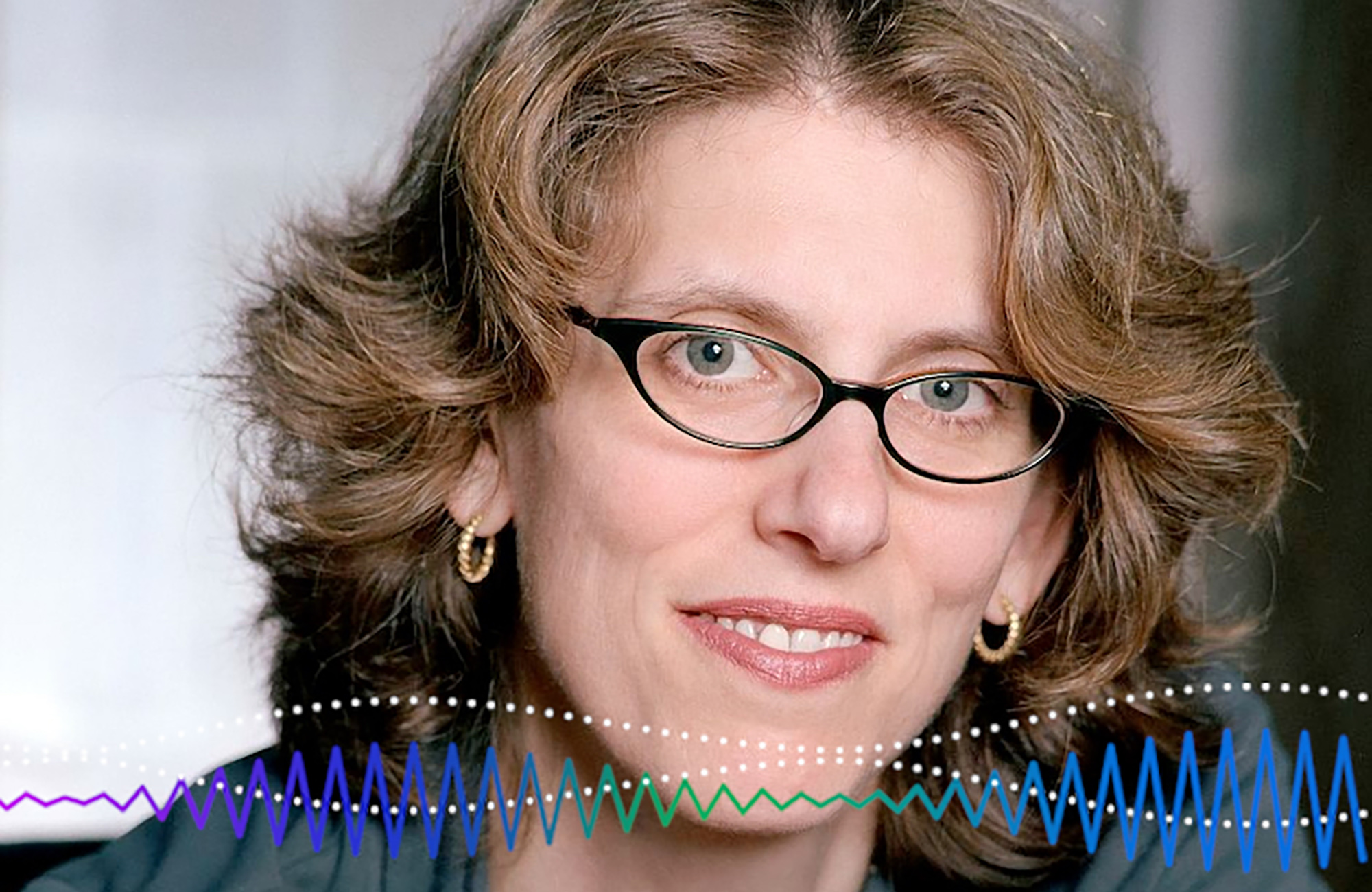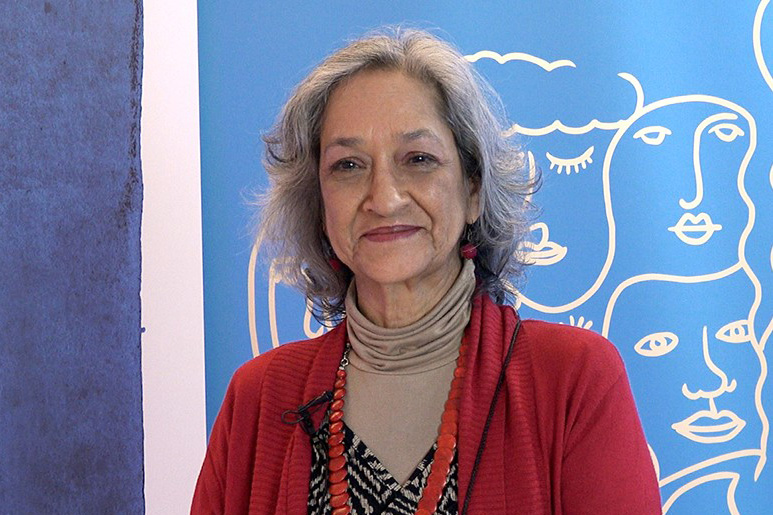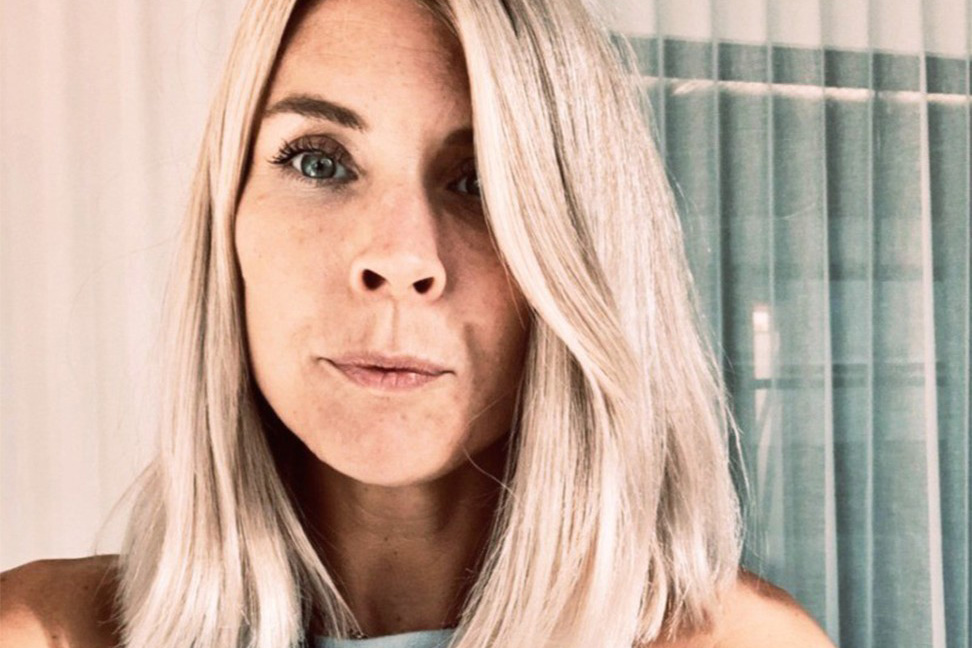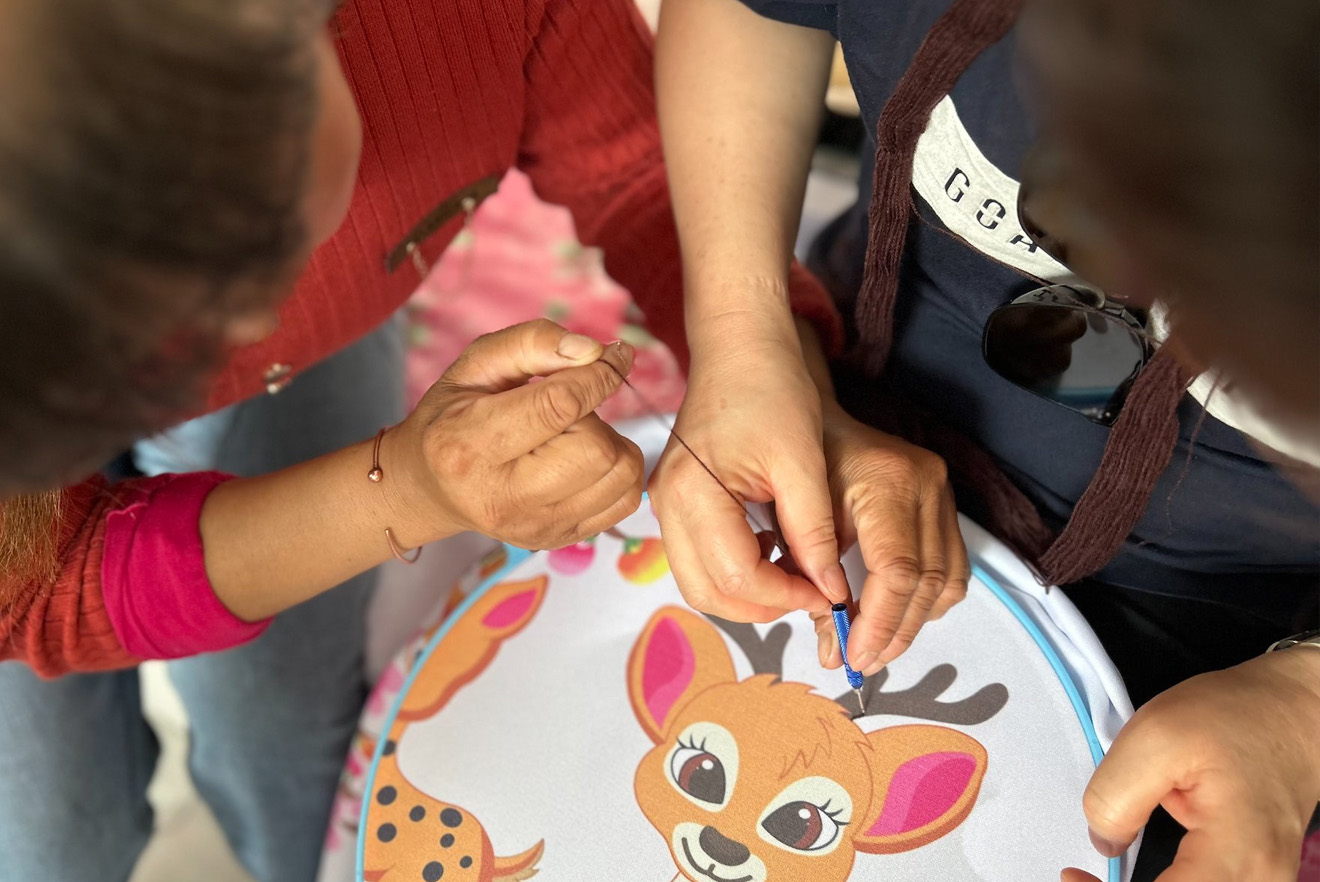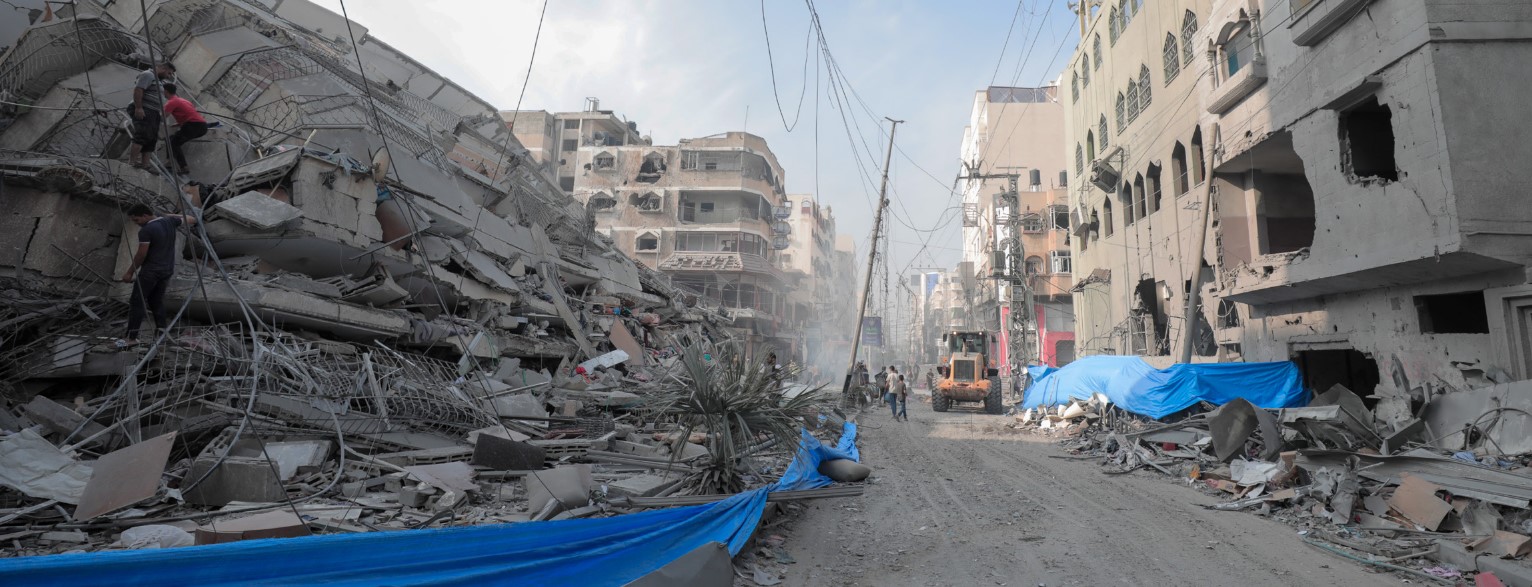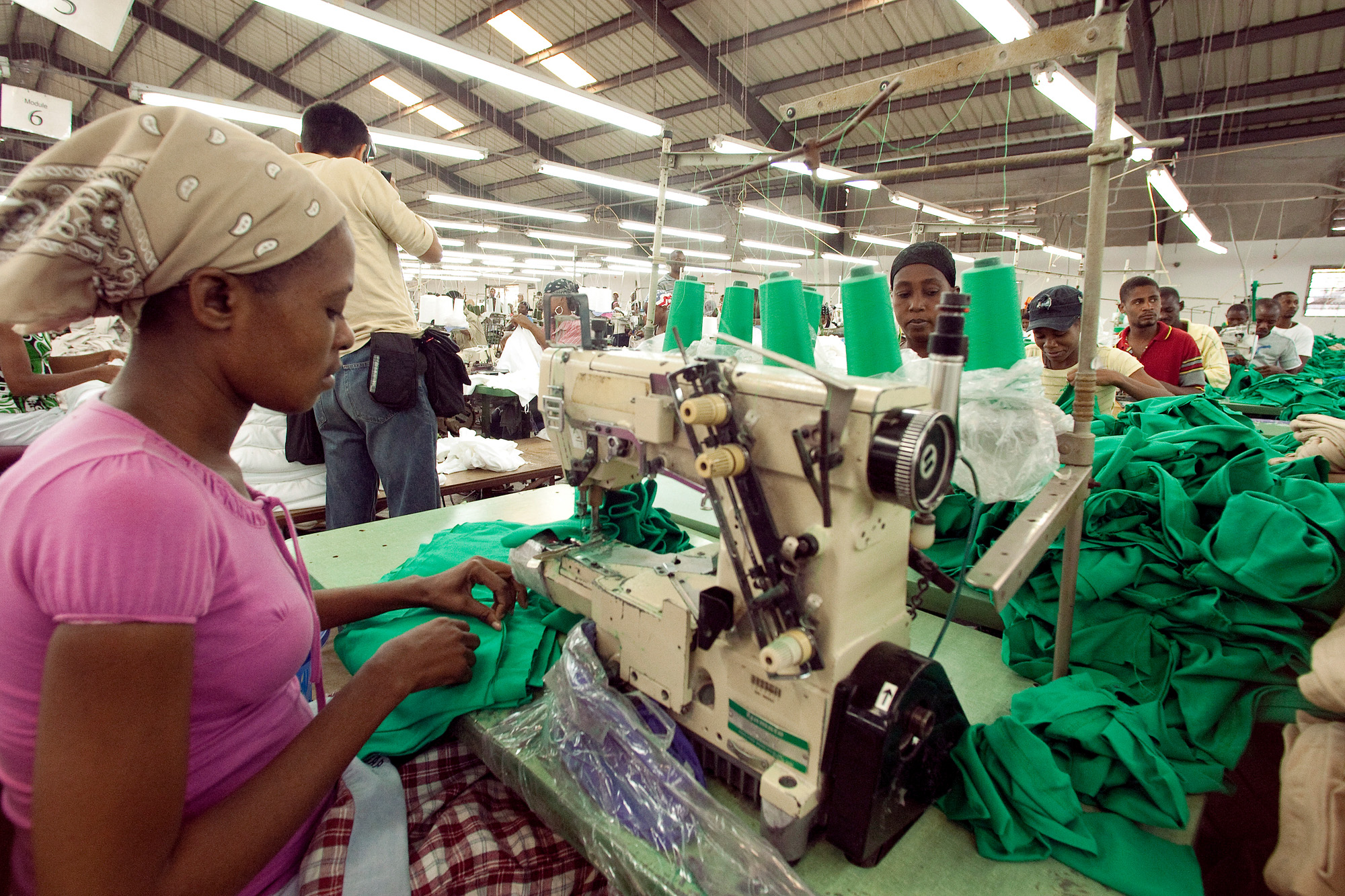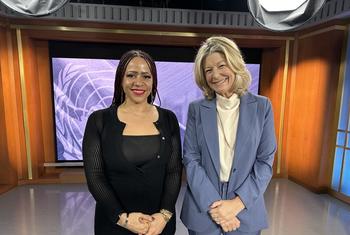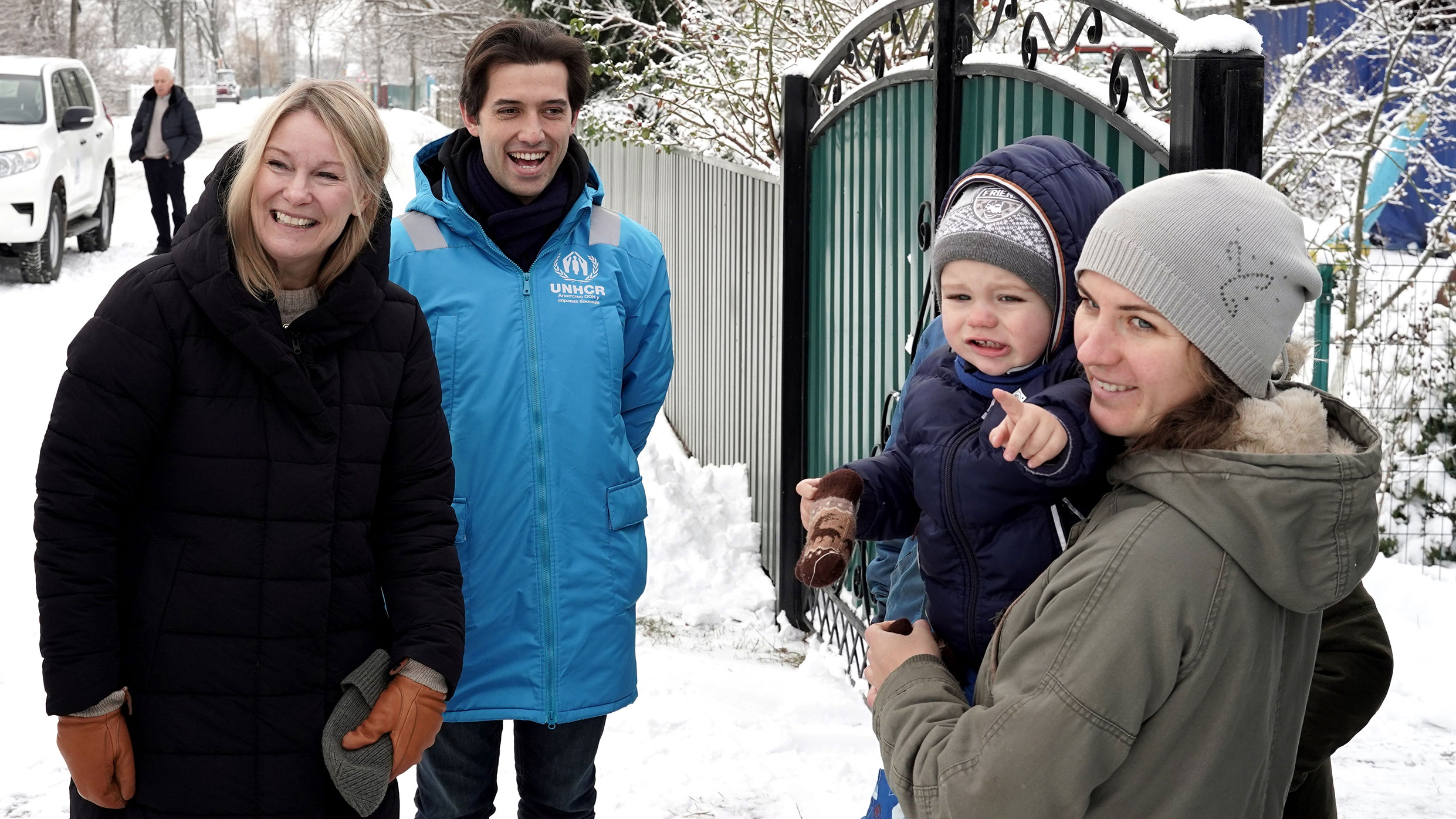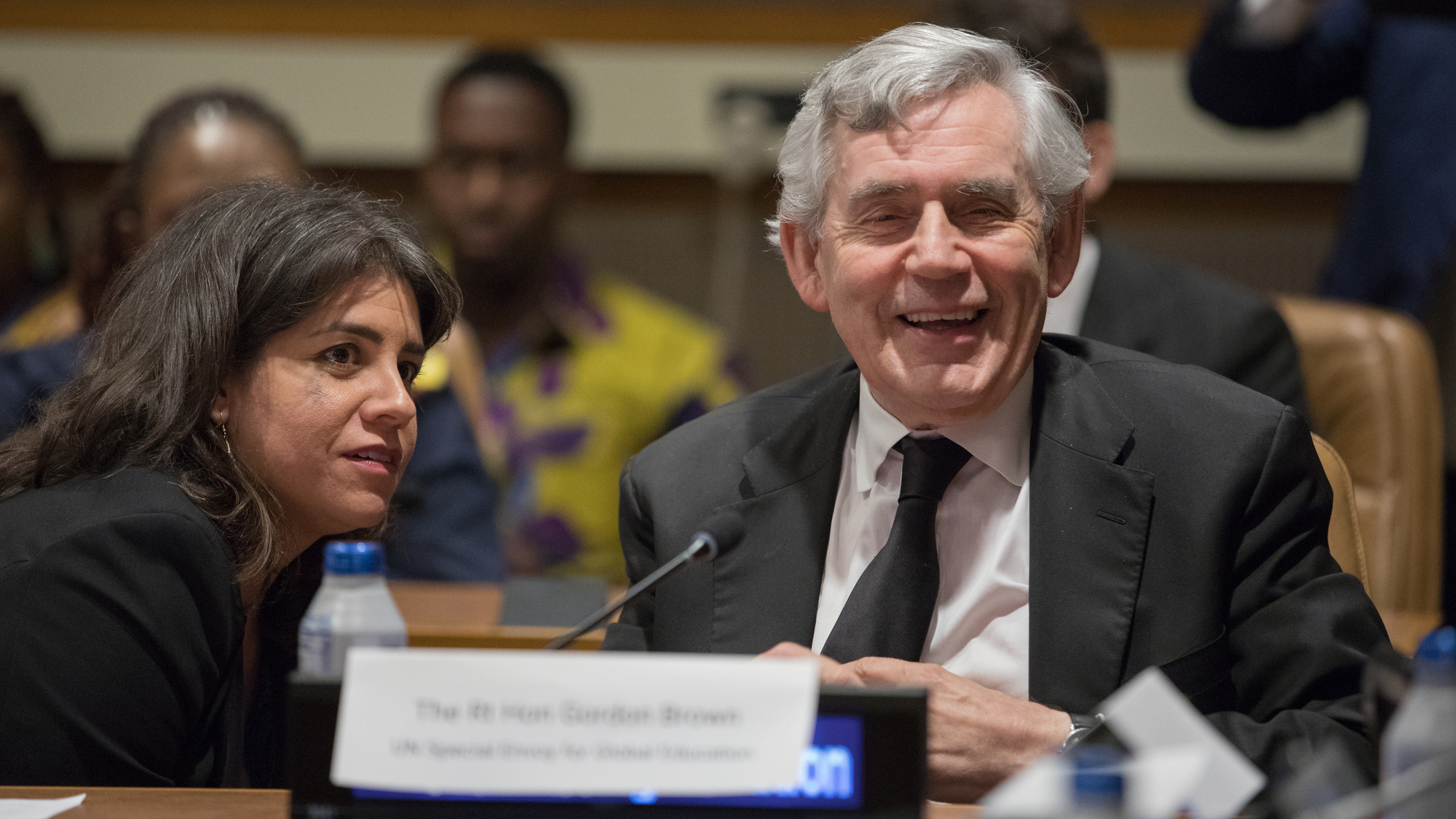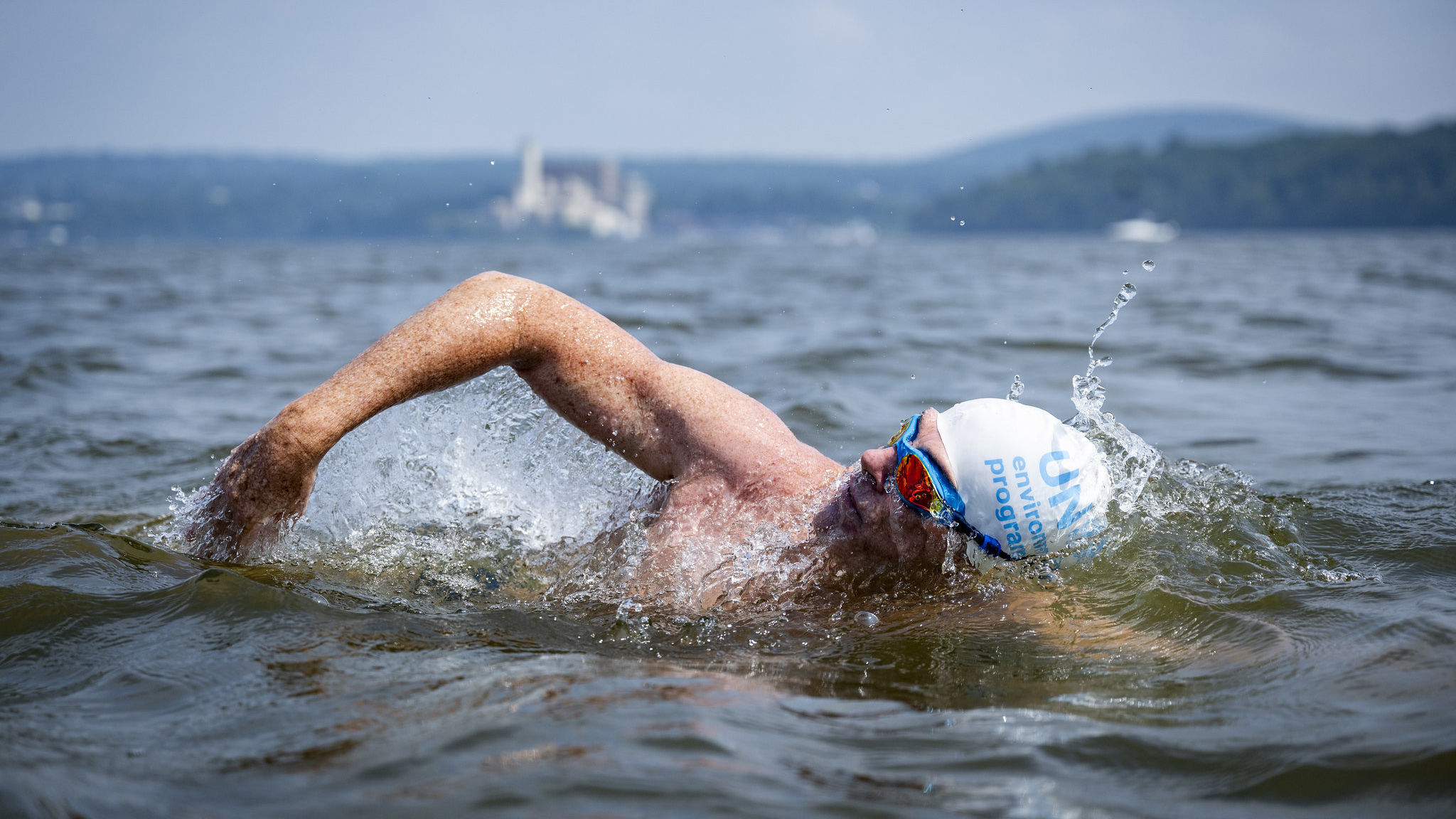Productivity has been the driving force behind the five- sometimes six-day workweek, but there is a growing body of evidence that shows a shorter week is equally, if not more productive in many respects. Juliet Schor is a champion of the four-day week and led the charge in the early 90s with her book The Overworked American, which studies the pitfalls of choosing money over time. Schor is an economist and sociologist at Boston College and heads the research for global trials of companies instituting four-day workweeks. Journalist Rhoda Metcalfe spoke with Juliet Schor about her four-day week mission, as part of the IMF Podcast series about Women in Economics.
“I think the direction in which we need to go is for us to restructure education,” said Farida Shaheed, the UN Special Rapporteur on the human right to education.
“I want it to be open. I want there to be much more appreciation of our artistic expressions. Education has to be rounded. It has to be based on human rights and it needs to explore and enable everyone to reach the full potential as human beings, whatever that may be.” Shaheed discussed the future of the human right to education and other issues as part of Voices of Dignity, a series of interviews with thought leaders and experts on the UN Human Rights Podcast.
“I think it’s a false premise that human rights are dead. To some extent, I think its being promulgated by naysayers and people who have given up on the framework,” said Eleanor Kennedy, senior policy expert from the Open Society Foundation (OSF) in this episode of Voices of Dignity: Pathways to Justice by UN Human Rights.
Last year, OSF put out “Can Democracy Deliver?” a first of its kind look at attitudes and opinions toward all aspects of democracy and human rights. Kennedy said the report brought up many surprising and challenging attitudes regarding human rights and its mechanisms, including if current human rights frameworks actually were delivering on their promises.
But one idea that came through loud and clear in the report, Kennedy stressed, was that the rumours of the demise of human rights has been greatly exaggerated.
Gender and age are significant factors that affect how people perceive risks, vulnerabilities, and opportunities. Life events such as marriage, childbearing, or retirement often put women and girls at a higher risk of poverty. Providing social protection, such as health insurance or cash transfers, can help reduce poverty and vulnerability, and support people from childhood to old age. In this podcast, three UNICEF officers: Ramya Subrahmanian, Nyasha Tirivayi, and Lauren Whitehead discuss Gender-Responsive and Age-Sensitive Social Protection.
This episode of The Weekly Tradecast looks at the impact of the Israel-Gaza crisis on the Palestinian economy with the United Nations Conference on Trade and Development (UNCTAD) economist Rami Alazzeh. Since the deadly assault by Hamas militants on October 7, Israel's military response has destroyed more than 37,000 buildings and displaced most of the 2.3 million people in the tiny enclave. With so much destruction, UNCTAD says in a new report that rebuilding Gaza will be all the more difficult given the already dire state of the economy from Israel’s decades-long blockade.
The world of work is undergoing profound change. These changes are creating skills gaps, mismatches and shortages that are resulting in unfilled jobs and lost productivity. So how do we close this skills gap? In search of an answer, the International Labour Organization has adopted a new international labour standard focused on updating its approach to skills and quality apprenticeships. But how will it work in practice? In this podcast Martin Henry, Research, Policy and Advocacy Coordinator of Education International in Brussels, and Kathryn Rowan, Executive Director of GAN, the Global Apprenticeship Network based in Geneva, share their insights.
Earlier in December, the UN Department of Global Communications hosted Knowledge, History and Power, an event featuring noted journalists Nikole Hannah-Jones and Laura Trevelyan. The event was organized by the Department of Global Communications Outreach Programme on the Transatlantic Slave Trade and Slavery in collaboration with the Universities Studying Slavery Consortium.
Pauline Batista from UN News talked to both award-winning journalists about the challenges, hopes and dreams for “the future of reparations,” in the United States and globally.
Photo Credit: UN News/Pauline Batista
"Volunteers from all areas of society have helped people who have been directly impacted by the war. They're cooking meals, giving clothing, giving money, opening their homes."
Karolina Lindholm Billing was posted to Ukraine less than a year before the full-scale Russian invasion. As the UNHCR Representative in the country, she draws hope from witnessing the power of community volunteer networks in supporting displaced people in their hour of need.
In this episode, Karolina reflects on Ukrainian resilience, the drive to rebuild, and why people long to stay in their own homes, even in a war zone.
“What I’ve seen so clearly during these last 600 plus days of the war in Ukraine, is how quickly people want to recover…So when we can be a little enabler of that recovery, I think that feels meaningful”
Photo: ©UNHCR/Oleksii Barkov
“Our job is to give hope and help by giving food to those who really need it most. And that's what we do.”
World Food Programme (WFP) Executive Director Cindy McCain has many pressing reasons to lie awake at night. As Head of WFP, it is her job to make sure the millions of vulnerable people around the world who are relying on UN food assistance – from Gaza to Sudan to Afghanistan – don’t starve. In this episode, recorded four weeks into the war in Gaza, Cindy McCain reflects on finding hope in desperate situations, and raising her voice for the world’s forgotten millions.
Hunger is still one of the biggest – and most solvable – problems globally, causing 783 million people around the world to go to bed on an empty stomach every night.
“[Donation gaps mean] I'm taking food from hungry people and giving it to starving people. That's a heck of a decision to have to make.”
Photo: ©WFP/JulianCiviero
"Justice gives relief not only to the victims, but to a prosecutor as well. So that is what keeps you upright and keeps you going on and says, okay, it is meaningful what you're doing."
Christian Ritscher’s work brings him into contact with some of humanity’s worst outrages. As head of the UN investigative team to promote accountability for the crimes committed by ISIL in Iraq, he seeks justice for victims of the notoriously violent terror group.
The Islamic State, or ISIL, stands accused of war crimes, crimes against humanity and genocide. Iraq’s Yazidi community were among those worst hit.
In this episode Christian Ritscher reflects on the impact on survivors, the difficulty of gathering testimony and on keeping faith in humanity when faced with its darkest acts.
Photo: ©UNITAD
“There is talent, there is potential, there is brilliance in all parts of the world. There's a new Einstein, there's a new Malala, you name the brilliant people around the world. But some of them have been denied the chance, even now, to have even the most basic education at school. And so, if 260 million school aged children are not going to school today, or any day, what a waste.”
A committed public servant, Gordon Brown has a strong sense of social responsibility. Now United Nations Special Envoy for Global Education, the former Prime Minister of the United Kingdom is working towards a powerful vision: giving every child the chance to go to school.
Modern slavery, trafficking, and child marriage are just some of the factors that contribute to an eyewatering 16% of youth worldwide missing out on school. In this episode, Gordon Brown reflects on the power of education to unleash hidden talent, on his own political legacy, and on why he still believes collaboration is the key to solving global crises.
“The lesson for me of all the recent crises is [that] cooperation is an essential element of the new world we're in… we waste our resources by everybody doing their own thing.”
Photo: ©UN Photo/Jaclyn Licht
"There is an increase in the use of torture worldwide. It's partly correlated to the fact that [...] we have more wars going on in this world since 1945. The International Committee of the Red Cross says there are 100 armed conflicts currently going on. And regrettably, with armed conflict comes an uptick in the use of torture and other forms of inhuman treatment."
Dr. Alice Jill Edwards spends many of her days listening to the testimonies of torture victims. Now the UN’s Special Rapporteur on torture and other cruel, inhuman, or degrading treatment or punishment, she works towards a world in which torture is finally a thing of the past.
"I rebuke the argument that it's a natural coalescence because I think disciplined troops do not torture."
In this episode, Dr. Alice Jill Edwards reflects on the challenge of holding states to their commitments, the visible and invisible scars torture leaves behind, and on the need to recharge without guilt.
Photo: ©United Nations
“In Syria, I was really struck by this lack of revenge. I haven't seen many people wanting revenge. They want justice. And that's really a very powerful attitude.”
A former judge, Catherine Marchi-Uhel spent a lifetime pursuing justice. Now leading the quest for accountability for atrocities and war crimes committed in the Syrian civil war, she finds comfort in survivors’ resilience and their determination to move on with their lives. Since 2016, the UN’s IIIM (International, Impartial and Independent Mechanism) has been helping investigate and prosecute the most serious atrocities committed in Syria during the devastating conflict.
In this episode, Catherine Marchi-Uhel reflects on the painstaking job of documenting brutality, the importance of preserving evidence, and how she keeps faith in the face of humanity’s darkest crimes.
“I believe fundamentally that nations have to work together to solve these big environmental crises, you cannot solve them on your own.”
Lewis Pugh was never afraid to take the plunge. Now ocean advocate for the United Nations Environment Programme, the record-breaking cold-water swimmer has completed long distance swims at both of the Earth’s Poles, in the Red Sea, and along the length of the Hudson River, to spread a message of habitat renewal and conservation.
Healthy oceans, seas and rivers are essential to supporting life on Earth - providing food, medicine, and acting as the world’s largest carbon sink. In this episode of Awake at Night, Lewis Pugh reflects on his love for the water, on his breathtaking swims, and onbreaking the diplomatic ice to create the world’s largest marine park.
Erasmia Roumana’s job requires extraordinary strength. Working in Greece as a protection associate with UNHCR, the UN Refugee Agency, she interviews refugees who have survived devastating shipwrecks at sea after embarking on desperate journeys in search of a better life.
“I have seen some very horrible situations. And I always wonder at that moment, how can people survive this? How can people move on after this?”
One tragic story stood out over the years. In 2014, Syrian refugee Doaa survived three days at sea following a shipwreck which killed 500 people, including her fiancé. In this episode of Awake at Night, Erasmia Roumana shares the latest fateful twist in Doaa’s story and reflects on the courage and resilience of the survivors she meets.

